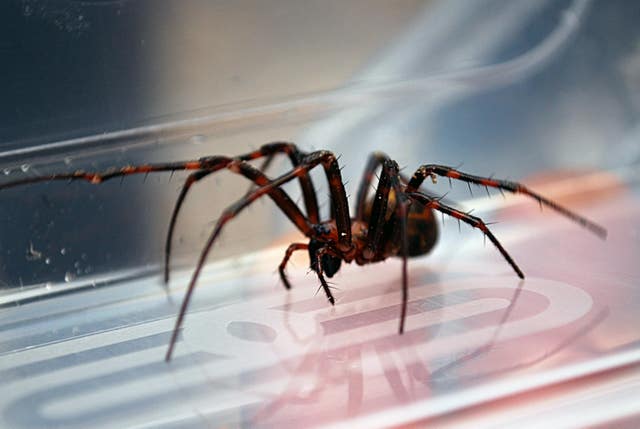Poo knives and alligator on helium among winning entries for Ig Nobel prizes
Awards were also given to scientists involved in research into French kissing and narcissistsâ eyebrows.

Knives made of frozen poo that do not work and a Chinese alligator performing the party trick of breathing in helium are among the winning entries of this year’s Ig Nobel prizes.
The annual event, which is in its 30th year, is usually held at Harvard University but, due to the restrictions imposed as a result of the coronavirus pandemic, the results were revealed online in a pre-recorded presentation.
Anthropologist Metin Eren, of Kent State University in Ohio, US, led the team that won the materials science prize for proving that knives made from frozen human faeces do not function as intended.
Their aim was to recreate the story of an Inuit man in Canada who fashioned a knife out of his own excrement to butcher a dog.
The researchers froze faeces to -50C in the lab and and then filed them to resemble knives with sharp edges.
But when they tried to slice meat with these tools, the “knife-edge simply melted upon contact, leaving streaks of faecal matter”.
The researchers say their study demonstrates that the anecdotal story about the Inuit man should no longer be used an an example that frozen poo knives work.
Meanwhile, Stephan Reber, from the University of Vienna, Austria, and his colleagues scooped up the acoustics prize for their paper looking to see whether reptiles could reveal clues about their body size through their vocalisations.
Mark Robertson, from St Augustine Alligator Farm Zoological Park in Florida, who was also involved in the research, said: “The question was whether alligators have vocal tract resonances like human speech.
“The key (thing here) is that sound travels faster in helium this makes the air passages seem shorter making the resonances higher.

“So if you breathe helium and the frequency shifts upward, that shows that there are resonances.”
The team found that much like humans, alligators sound different when inhaling helium.
Mr Reber said: “To the best of our knowledge, our study is the first to show that all alligators sound strange when inhaling a party balloon.”
He added: “This is evidence that also non-avian reptiles have resonances in their vocalisations.”
The UK also had its fair share of gongs.
Chris Watkins, a psychologist at the University of Abertay in Dundee, shared the economics prize with eight other authors involved in the study.
Their research, which was published in the journal Scientific Reports last year, found French kissing was more common between partners in places which had high income equality.
Boris Johnson shared the medical education prize with Vladimir Putin, Donald Trump and several other world leaders for demonstrating that politicians can have a more immediate effect on life and death than scientists and doctors can during the Covid-19 pandemic.

Retired professor and spider specialist Richard Vetter bagged the entomology award for collecting evidence that many scientists who study insects are afraid of spiders.The psychology prize went to researchers for devising a method to identify narcissists by examining their eyebrows.
Meanwhile Dutch and Belgian researchers scooped up the medicine prize for showing that talking therapy can help treat misophonia, a condition where a person feels distress on hearing another person chew.
The management prize went to five Chinese professional hitmen who subcontracted the crime to each other but failed to get the job done.
The governments of India and Pakistan bagged the peace prize for having their diplomats ring each other’s doorbells in the middle of the night, and then run away before anyone had a chance to answer the door.
The annual Ig Nobel awards a comic take on the more serious Nobel science prizes, which is due to take place in Scandinavia next month.





